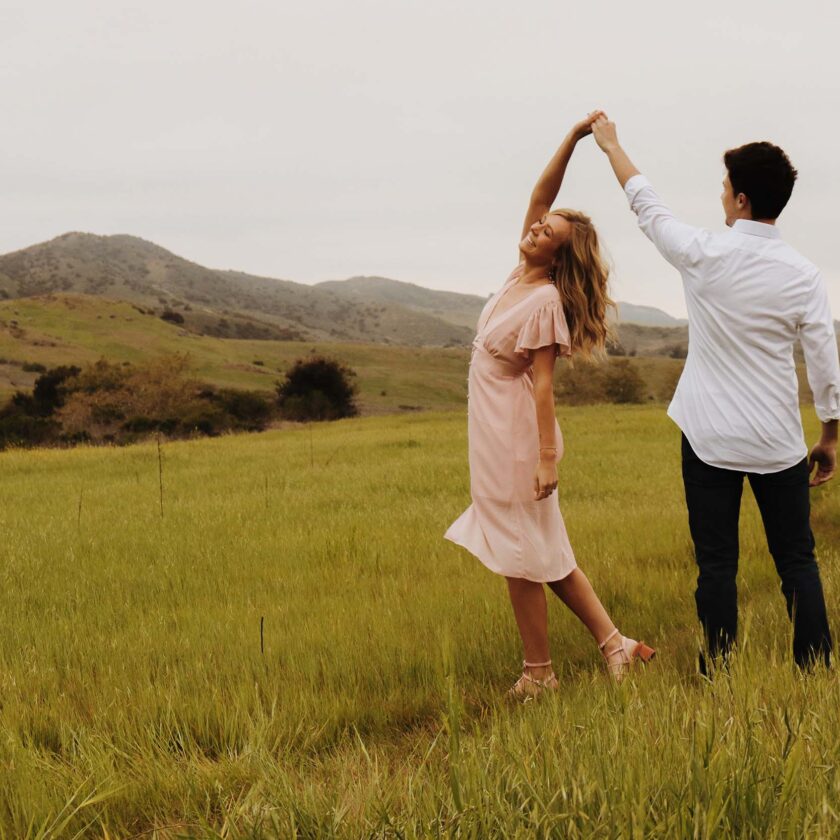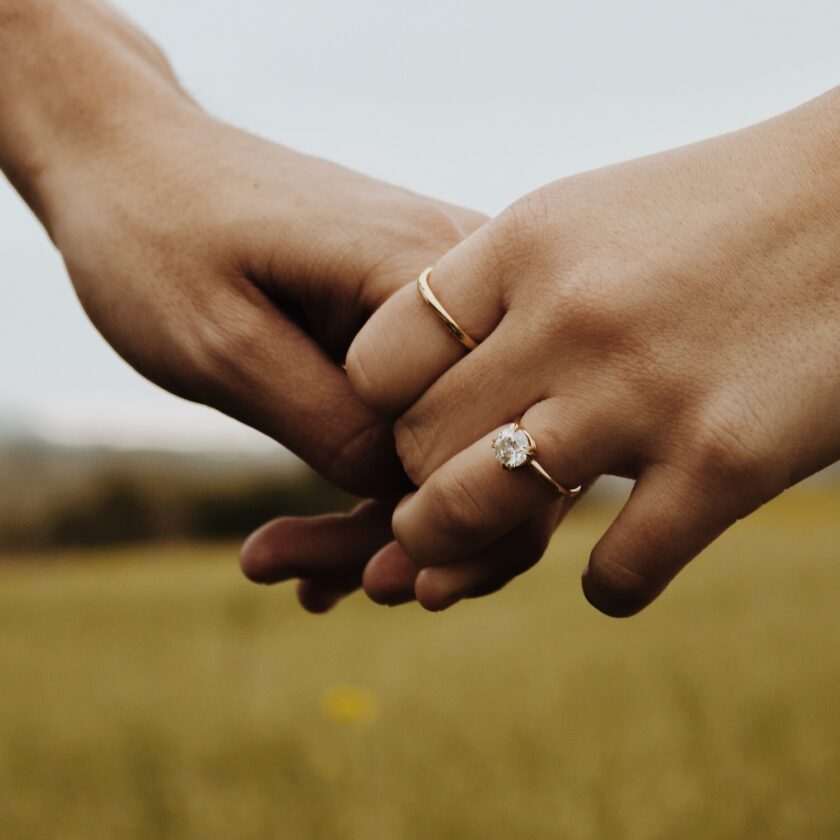Written by Laura Spach and Joel Kilpatrick
Taylor Olson and Andrew Meyers, both 21, met and fell in love at Azusa Pacific University. They planned to get married August 2, 2020 — and then COVID-19 hit.
“One of my friend’s wedding got canceled, so they had a courthouse wedding,” says Andrew, who is from Eugene, Oregon. “Then they had a drive-by wedding so people could say congrats and drop off a gift.”
Like a number of couples trying to get married in the age of COVID, Taylor and Andrew decided to forge ahead in spite of obstacles. They have kept their original wedding date, believing that the world will be back to normal enough to make their day special. Their journey reflects the relational and business challenges the shutdown has inflicted on brides, grooms and the wedding industry.
The first sign of distress came when their wedding venue, a family-run business in rural Ventura County, quit communicating, causing the couple to wonder if they should minimize their guest list to meet uncertain, unspecified future guidelines. The photographer, too, went MIA.
“We had a backup plan — going to the courthouse and postponing the actual big ceremony because we’re not going to compromise the guest count or the venue or any of that,” says Taylor. “We could get legally married and then have our original wedding at a date that’s safe, and with guidelines.”
But that was not their first choice. Instead, they problem-solved their way through the process, even as the world hunkered in homes. After her March 27 fitting was canceled, Taylor ordered her dress online. She had to give up a rite of passage many girls dream about: the selection, sizing and fitting of the dress.
Flowers arrangements were done by a friend of the family. Pre-marital counseling was performed via Zoom, which was at times strained because, while discussing sensitive topics, there would be an awkward pause and nobody was sure who should talk next. A natural flow didn’t seem to materialize.
Anticipating limitations on numbers of people who could gather, the couple minimized their guest list until they didn’t want to cut any more.
Then the family weighed in. Half of the bride’s out-of-town relatives said they didn’t want to travel or attend for fear of infection, even though the venue was outdoors.
“I don’t want to look back on my pictures and have regrets,” says Taylor, who graduated from Newbury Park High in 2016. “I don’t want to have ten people at my wedding just to comply with CDC guidelines.”
Wedding vendors pinched
On the other side of the equation is Les Sumpter, owner of A Rental Connection, located in Ventura County, for 36 years. The company used to do as many as 30 weddings on a single weekend before COVID-19 hit. Lately, they’ve been doing backyard events with a handful of people.
“Nobody in our industry has had any work,” says Sumpter. “Anybody who was involved in weddings — forget it. Your florists are getting killed. Until now, weddings have been the only resilient market because no matter what the trends, weddings tend to go on. Even in the ’08 recession, weddings still happened. Corporate events all dried up in harder times, but weddings managed to stay going.”
Not now.
The wedding industry involves a number of independent contractors — florists, bakers, coordinators and so on — whose livelihood all depends on a single event. When that event goes away, “The domino effect is unbelievable,” Sumpter says. “The question is, what is the first domino? Is it the coordinator, caterer, rental company, hotel, the bakery? You could go on and on. We’re all intertwined with each other.”
Thankfully, with the shutdown drawing to a close, A Rental Connection has brought back 15 of its 45 prior employees. Some have already moved on to other jobs — and still others find it more advantageous to stay home and collect unemployment insurance.
Sumpter now faces the issue of bringing people back to work safely in the company’s large warehouse.
“Right now we have people working outside and inside trying to keep them spaced as much as we can,” he says. “Some days you’re more optimistic than others. Even this week, seeing emails come in for future work makes you feel good, that people are still planning.”
Among them: Taylor and Andrew who are still aiming for August 2. On the upside, the company that created their invitations offered to re-do them for free. The couple also bought honeymoon insurance for their Cancun honeymoon, should it be canceled or postponed.
Another advantage, says Taylor, is that “because of all this and the way it’s been downsized, it definitely prevented me from being a bride-zilla.”
Taylor is studying to become an occupational therapist, and Andrew wants to go into dentistry. After their wedding — whatever it ends up looking like — they are going to finish their degrees while living in married campus housing at APU.
“If you really want to get married, you will. You’ll figure it out,” Sumpter says. “People are getting creative. Hopefully, though, we’ll get to a point where people are allowed to have their functions.”


Photos by Ethan Olson
